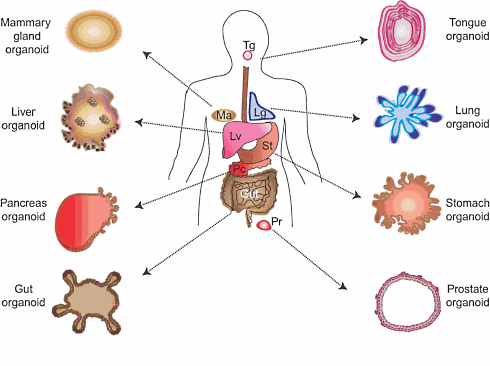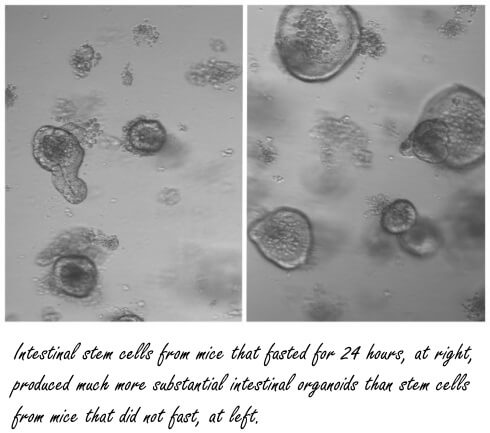You Know me! I am a big fan of fasting for health and even improving sports performance. But fasting can also help regenerate Tissue!
If during a period of fasting the body no longer uses glucose as fuel, and starts to use fatty acids instead, stem cells get an incentive to rejuvenate old and damaged tissues.
A spectacular animal study, published by biologists from the Massachusetts Institute of Technology (MIT) in Cell Stem Cell, shows how fasting rejuvenates tissues. If during a period of fasting the body no longer uses glucose as fuel, and starts to use fatty acids instead, stem cells get an incentive to regenerate old and damaged tissues.
Study
“Fasting has many effects in the intestine, which include boosting regeneration as well as potential uses in any type of ailment that impinges on the intestine, such as infections or cancers”, says biologist and research leader Omer Yilmaz of MIT in a press release. [sciencedaily.com May 3, 2018]
“Understanding how fasting improves overall health, including the role of adult stem cells in intestinal regeneration, in repair, and in aging, is a fundamental interest of my laboratory.”
The researchers had a group of mice fast one day, while another group of lab mice was given feed. Then the researchers extracted stem cells from the intestinal crypts of the animals, and looked at the extent to which the stem cells were able to form new intestinal tissue.
Such pieces of new tissue formed by stem cells are called organoids. The more organoids form stem cells, and the larger these things become, the greater the body’s ability to repair and rejuvenate tissues.
Results
“It was very obvious that fasting had this really immense effect on the ability of intestinal crypts to form more organoids, which is stem-cell-driven,” says first author Maria Mihaylova. “This was something that we saw in both the young mice and the aged mice.”
The longer the animals had fasted, the stronger the stimulus for the stem cells to form organoids.
Mechanism
During fasting, cells switch to fatty acids as fuel. They start to produce more of the enzyme carnitine palmitoyltransferase I, which pull fatty acids into the mitochondria, where they are converted into energy. If the researchers blocked carnitine palmitoyltransferase I with etomoxir [Eto], then the incentive to form organoids diminished.
Conclusion
The increase of the regenerative capacity by fasting is therefore related to the burning of fatty acids instead of carbohydrates. “This study provided evidence that fasting induces a metabolic switch in the intestinal stem cells, from utilizing carbohydrates to burning fat”, says biologist and co-author co-auteur David Sabatini. “Interestingly, switching these cells to fatty acid oxidation enhanced their function significantly. Pharmacological targeting of this pathway may provide a therapeutic opportunity to improve tissue homeostasis in age-associated pathologies.”
Sabatini is referring to pharmacological PPAR delta agonists. We, the pussies of Ergoland, see more perspective in nutrients such as omega-3 fatty acids interacts with PPARs as well] and L-carnitine [co-factor of fat-burning enzymes]. And physical exercise during fasting periods.
Source:
Cell Stem Cell. 2018 May 3;22(5):769-778.e4.





